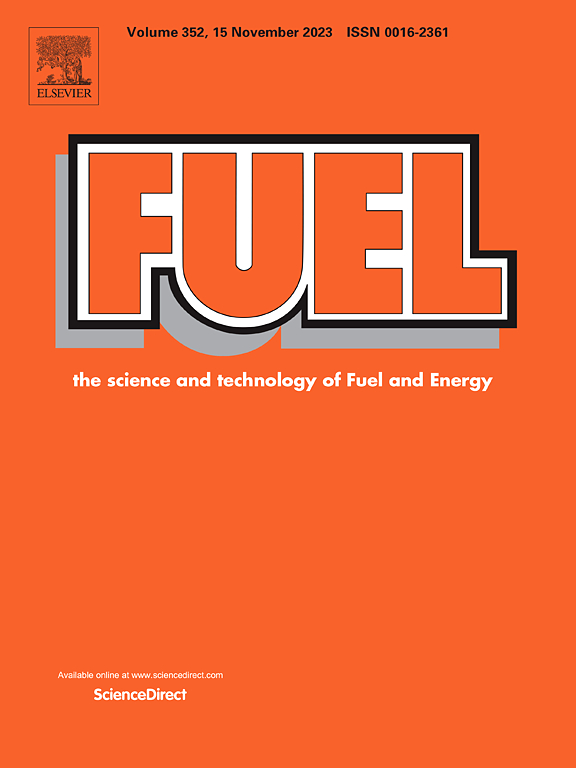The coupling of propane and methanol: enhancing hydrocarbon conversion and stability through integrated catalytic processes
IF 6.7
1区 工程技术
Q2 ENERGY & FUELS
引用次数: 0
Abstract
The integration of endothermic alkane activation and exothermic methanol conversion presents a promising strategy for enhancing energy efficiency and economic viability in hydrocarbon processing. Herein, we systematically investigate the propane-methanol co-reaction using a ZSM-5 catalyst, focusing on the effects of reaction conditions and the synergistic interactions between propane and methanol. The results reveal that at an optimized temperature of 475 °C and a 1:1 M ratio of propane to methanol, the introduction of methanol substantially enhances propane activation. Notably, the conversion mechanism shifts from monomolecular cleavage to bimolecular hydrogen transfer, effectively reducing the selectivity of by-products methane and ethylene from 66.8 % to 24.4 %, and increasing the selectivity of aromatics from 1.5 % to 25.9 %. Additionally, the co-feeding of propane and methanol extends the catalyst lifetime by promoting alkene-based cycles during methanol conversion. Comprehensive characterization of the spent catalysts indicates that the enhanced catalytic stability is attributed to the suppression of high carbonization and ordered coke species. These findings provide valuable insights into the catalytic mechanisms involved and highlight the potential for optimizing sustainable chemical production pathways.

丙烷和甲醇的耦合:通过集成催化过程提高碳氢化合物的转化率和稳定性
烷烃吸热活化与甲醇放热转化相结合是提高能源效率和经济可行性的有效途径。本文采用ZSM-5催化剂对丙烷-甲醇共反应进行了系统研究,重点研究了反应条件的影响以及丙烷和甲醇之间的协同作用。结果表明,在最佳温度为475℃,丙烷与甲醇的质量比为1:1的条件下,甲醇的加入显著提高了丙烷的活性。值得注意的是,转化机制由单分子裂解转变为双分子氢转移,有效地将副产物甲烷和乙烯的选择性从66.8%降低到24.4%,芳烃的选择性从1.5%提高到25.9%。此外,丙烷和甲醇的共进料通过促进甲醇转化过程中的烯烃基循环延长了催化剂的寿命。对废催化剂的综合表征表明,催化稳定性的提高是由于抑制了高炭化和有序焦种。这些发现为所涉及的催化机制提供了有价值的见解,并强调了优化可持续化学生产途径的潜力。
本文章由计算机程序翻译,如有差异,请以英文原文为准。
求助全文
约1分钟内获得全文
求助全文
来源期刊

Fuel
工程技术-工程:化工
CiteScore
12.80
自引率
20.30%
发文量
3506
审稿时长
64 days
期刊介绍:
The exploration of energy sources remains a critical matter of study. For the past nine decades, fuel has consistently held the forefront in primary research efforts within the field of energy science. This area of investigation encompasses a wide range of subjects, with a particular emphasis on emerging concerns like environmental factors and pollution.
 求助内容:
求助内容: 应助结果提醒方式:
应助结果提醒方式:


